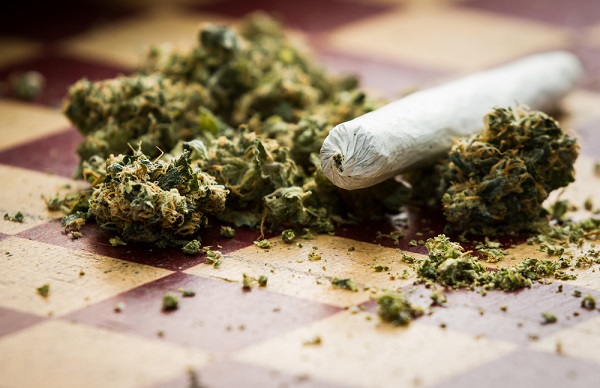In the State of New Jersey, it is a crime to knowingly or intentionally possess marijuana. Even insignificant amounts are considered an offense. The penalties vary according to the amount in possession.
Possession of Under 50 Grams
In New Jersey, a simple possession (without intent to sell) of less than 50 grams of marijuana is a disorderly persons offense. When found with marijuana, no amount is too small to avoid arrest—even trace amounts constitute possession of less than 50 grams. Even an individual with a pipe containing no marijuana, only residue will face charges not only for drug paraphernalia, but also for possession of marijuana.
Possession of less than 50 gram is a disorderly persons offense that can result in penalties of up to $1,000 in fines and up to 6 months in jail. Second and subsequent offenders may be subject to more severe consequences. New Jersey allows first time offenders to avoid jail time by participating in the Conditional Discharge diversionary program. Those eligible for the program will be put on probation, which requires them to remain drug-free and arrest-free for a determined period. If the probation is completed without any violations, the original charges will be dismissed. However, if the defendant fails to comply with the regulations of the probation, the conditional discharge will be terminated and the original charges will proceed to court for prosecution.
Possession of 50 Grams or More
As the amount of marijuana in possession increases, the penalties and charges increase as well. In New Jersey, possession of 50 grams or more of marijuana is considered a 4th degree crime. Unlike a disorderly persons offense, a 4th degree crime is an indictable offense and must be addressed in the supreme court. A conviction of possession of 50 grams of marijuana or more carries penalties of up to $25,000 in fines and a sentence of up to 18 months in a New Jersey state prison.
If you have been charged with possession, you need legal representation to help minimize and possibly eliminate the penalties. In almost all circumstances, police find marijuana on a person through a search. As your attorney I, Robert E. DePersia, II, will determine if the police followed the correct procedures for the search. Any evidence gained through an improper search cannot be used against you in court. To find out how I can help you or if you have any questions, call The Law Office of Robert E. DePersia, II today at (856) 795-9688.


